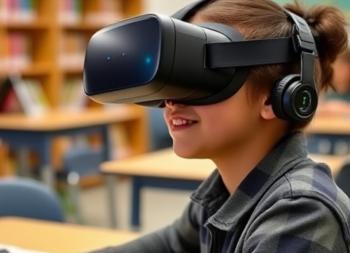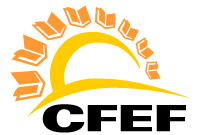
FIND IT FUND IT FLORIDA
"Breaking Barriers: VR-Enhanced English Language Acquisition for 7th and 8th Graders"

- School:
- Seaside School
- Subject:
- Literacy
- Teacher:
- Robyn Wallace
- Students Impacted:
- 119
- Grade:
- 6-8
- Date:
- October 14, 2024
Investor
Thank you to the following investor for funding this grant.
The Alys Foundation - $781.94
Goal
This grant proposal, "Breaking Barriers: VR-Enhanced English Language Acquisition for 7th and 8th Graders," seeks funding to integrate Virtual Reality (VR) technology into the English Language Acquisition (ELA) classroom for 7th and 8th grade students. The primary goal is to revolutionize language learning by providing immersive experiences that enhance vocabulary acquisition, cultural understanding, and communication skills for English language learners. By leveraging VR technology, we aim to improve English language proficiency through engaging, context-rich environments, while simultaneously enhancing cultural awareness and global perspectives. This innovative approach is designed to increase student motivation and engagement in language learning, ultimately leading to improved language skills and confidence. Additionally, the project will foster the development of crucial 21st-century digital literacy skills, preparing students for an increasingly technology-driven world. Through this grant, we seek to create a more dynamic, effective, and culturally rich language learning experience that bridges linguistic and cultural gaps, empowering our diverse student population to thrive in their academic and personal lives.
Category
Electronics - Personal computers/tablets/iPads, headphones, charging cables, computer mice, etc.
What will be done with my students
Our VR-enhanced ELA program will seamlessly integrate into the existing curriculum, with weekly 30-minute VR sessions designed to complement and reinforce traditional language instruction. Students will engage in a variety of immersive experiences, including virtual field trips to English-speaking countries, interactive vocabulary lessons, and cultural simulations. Each VR session will be bookended by preparatory activities and follow-up discussions to maximize learning outcomes. For instance, before a virtual tour of London, students might study related vocabulary and historical context; afterwards, they'll participate in group discussions and complete writing exercises based on their virtual experiences. Throughout the program, students will work on collaborative projects inspired by their VR adventures, such as creating digital travel brochures or recording podcast episodes about cultural differences. We expect to see tangible improvements in students' English proficiency scores, particularly in speaking and listening skills, as well as a marked increase in their cultural awareness and global competence. To measure the program's effectiveness, we'll conduct pre- and post-project language assessments, regularly survey students about their engagement levels and cultural understanding, and closely observe their participation and language use during class. Teachers will also analyze students' VR-related work products to gauge comprehension and progress. By the end of the school year, we anticipate our ELA students will demonstrate not only enhanced language skills but also greater confidence in their ability to navigate diverse cultural contexts, setting them up for success in our increasingly interconnected world.
A detailed list would include (but not be limited to):
Virtual Author Visits: Use VR apps like Google Expeditions or Nearpod VR to take students on virtual tours of authors' hometowns or settings from famous novels. This can provide context for literature study and inspire creative writing.
Interactive Storytelling: Utilize CoSpaces Edu to have students create their own 3D virtual environments based on stories they've read or written. They can design scenes, add characters, and even animate their creations.
Character Perspective Exercises: Use 360-degree video apps to immerse students in different environments, then have them write from the perspective of a character experiencing that setting.
Virtual Book Reports: Instead of traditional book reports, have students create virtual tours or experiences related to their books using ThinkLink or CoSpaces Edu.
Poetry Visualization: Use Nature Treks VR or similar apps to inspire students to write descriptive poetry based on the virtual environments they explore.
Historical Context Immersion: For historical fiction units, use apps like Anne Frank House VR to provide students with a deeper understanding of the historical context.
Vocabulary in Context: Create scavenger hunts in virtual environments where students have to identify and use vocabulary words in context.
Comparative Literature: Use Google Earth VR to explore different cultural settings related to diverse literature, helping students understand cultural contexts.
Debate Preparation: Use VR experiences to help students gather information and context for debates on topics related to literature or current events.
Narrative Structure Analysis: Have students create virtual storyboards of plot structures using VR creation tools, helping them visualize narrative arcs.
Empathy-Building Exercises: Use VR simulations to put students in the shoes of characters from literature, encouraging empathetic writing and discussion.
Multimedia Book Trailers: Encourage students to create immersive book trailers using VR tools, combining visual storytelling with persuasive writing skills.
By integrating these VR experiences, teachers can make ELA lessons more engaging, interactive, and memorable for 7th and 8th grade students, while still focusing on core literacy skills and curriculum objectives.
Benefits to my students
The integration of VR technology into our 7th and 8th grade ELA classroom will provide numerous tangible benefits for our students. Firstly, it will accelerate English language acquisition by offering contextual, immersive experiences that make abstract vocabulary and grammar concepts more concrete and memorable. For example, students struggling with prepositions of place will be able to physically navigate virtual environments, reinforcing their understanding through visual and kinesthetic learning. Secondly, VR will boost students' confidence in speaking English by allowing them to practice in low-stress, simulated real-world scenarios before facing similar situations in real life. This is particularly crucial for our shy or anxious learners who may be hesitant to speak up in traditional classroom settings. Thirdly, the cultural immersion experiences provided by VR will foster greater empathy and global awareness among our students, essential skills for their future academic and professional lives. Additionally, the engaging nature of VR technology will increase motivation and participation, especially beneficial for our students who may be disengaged by traditional teaching methods. Lastly, exposure to VR technology will develop our students' digital literacy skills, preparing them for the technology-driven future they will encounter in high school and beyond. By embracing this innovative approach to language learning, we are not just teaching English; we are equipping our 7th and 8th graders with the linguistic skills, cultural competence, and technological fluency they need to thrive in an increasingly globalized and digital world.
Budget Narrative
Electronic Device-Total $448.99
Oculus Quest 3S 256 GB with comfort strap (448.99)
Acessories for Electronic Device-Total $147.96
Carrying Case (42.99)
Link Cable to show on class Promethian Board (15.99)
Lens Cover (18.99)
Charging Dock (69.99)
Applications/Subscriptions--Total $184.98
Cospaces Edu (54.99)
Nearpod VR (120.00)
KingTut VR (9.99)
Items
| # | Item | Cost |
|---|---|---|
| 1 | Meta Quest 3S 256GB + Elite Strap | $448.99 |
| 2 | DEVASO Large Carrying Case for Meta Quest 3, Upgraded Hard Travel Case Compatible with Battery Head Strap | $42.99 |
| 3 | CoSpaces Edu -This versatile app allows teachers to create custom VR experiences for literature exploration, storytelling, and language practice | $54.99 |
| 4 | Nearpod VR Premium Subscription-Offers ready-made VR lessons that can be customized for ELA content, including virtual field trips that can inspire writing and discussion. | $120.00 |
| 5 | KingTut VR - Useful for historical context in literature studies and as a prompt for creative writing. | $9.99 |
| 6 | Syntech Link Cable 16 FT Compatible with Oculus/Quest 3/Meta Quest 3S, Quest2/Pro/Pico 4/Ultra Accessories and PC/SteamVR, High Speed PC Data Transfer, USB 3.0 to USB C Cable for VR Headset | $15.99 |
| 7 | Laeuzn Oculus Meta Quest 3S Accessories, Camera Lens Protector, Thin 9H Tempered Glass, Alloy Frame, Camera Screen Protector Cover, Anti-Scratch, Case Friendly, High Definition Lens Accessories (Black) | $18.99 |
| 8 | NexiGo Enhanced Charging Dock for Meta Quest 3 and 3S, with LED Light [On/Off], [Support Elite Strap with Battery], Headset Display Holder and Controller Mount, Rechargeable Batteries, White | $70.00 |
| Total: | $781.94 |





Share
Please share this page to help in fulfilling this grant.
Email to a Friend